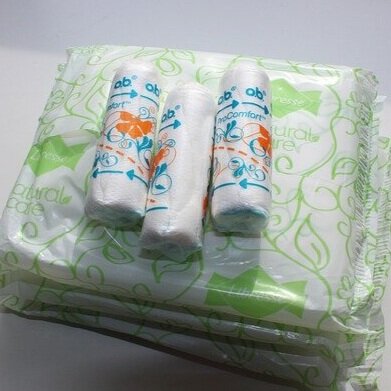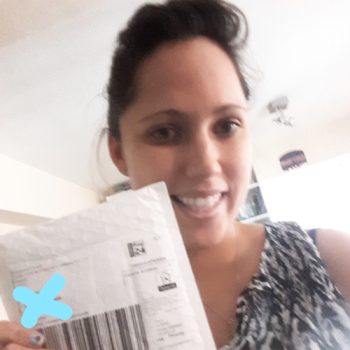
Dealing with Your Period Abroad (in Spain)
Dear Georgina,
 It is something that most women get once a month and that can be quite uncomfortable or even debilitatingly painful, yet we almost never talk about it, even in our own society. We are, of course, talking about periods. You might learn about them from your mom or doctor or sex ed course but most of us grow up figuring things out as they go along. You learn to deal with the normalities of having to buy sanitary products and handling any other side effects you might have.
It is something that most women get once a month and that can be quite uncomfortable or even debilitatingly painful, yet we almost never talk about it, even in our own society. We are, of course, talking about periods. You might learn about them from your mom or doctor or sex ed course but most of us grow up figuring things out as they go along. You learn to deal with the normalities of having to buy sanitary products and handling any other side effects you might have.
However, your normal practices—from buying the products you need to figuring out your birth control of choice—will probably change when you go abroad.
Back in March 2021, Dani spoke with Anabel Fortes of Pitacho Online Spanish Lessons about taboo topics and menstruation was one of the things they spoke about. She shared with us some great graphics with important vocabulary. You can find the interview on our YouTube channel as part of our Cómo Aprender Español series and see more in this article. Taking this conversation into consideration, we would like to dive a bit deeper into the idea of what to do when you have your period abroad, specifically in Spain.
Important vocabulary:
La regla / el periodo / la menstruación
Period
La sangre
Blood
Estar con la regla
To have your period
Bajar la regla
To get your period
Las compresas
Pads / sanitary towels
El tampón
Tampon
La copa menstrual
Menstrual cup
Las bragas menstruales
Period underwear
Los calambres
Cramps
La menopausia
Menopause
Note: If you want to read more about menopause abroad, check out this post.
Buying Sanitary Products:
Buying the right sanitary products for you can be difficult while abroad because you know what you like back home and finding the same things in Spain may be impossible. That means you will probably have some trial and error until you find the right fit for you. That said, it is relatively easy to find sanitary products in Spain. They are available at supermarkets, pharmacies, and the stores open late which are often called ‘chinos.’
You should not expect the same selection at every store, however, and if there is something that you like, you should know you might not find it everywhere. Especially at the chinos, the selection tends to be limited so you might just get what they have. In addition, if you want to buy a menstrual cup or period underwear you will probably have to look at specialty stores, although the Mercadona (a classic Spanish supermarket) now carries them as well.
Birth Control:

Birth control can be very important for many different reasons and this is one thing we really recommend thinking about before going abroad. If you are moving abroad for a short period of time—like for a six month study abroad program—we would recommend trying to fill your entire prescription before leaving home. In our opinion, it is not worth the hassle of trying to figure out how to get your prescription while abroad if you don’t have to.
If you are moving abroad and staying abroad for a longer period of time, you should sort out your insurance (either private or public) and book in to see a doctor. Getting birth control in Spain isn’t super restricted and you may be able to get a prescription directly from your a GP. However, you might have to visit a general practitioner and then schedule several different appointments before you are able to talk to a gynecologist. Therefore, if you know you will need to have your prescription renewed in the next three months or so, we would recommend starting the process sooner rather than later.
Periods in Spain:
Like anywhere, the way people treat periods varies depending on who you are talking to. However, in our experience, we have found that there are some tendencies that are a bit different to what we grew up with. Part of this may have to do with how things change over time and some of it might be cultural but we’d like to share some of the things we have noticed just in case they are useful for you.
For example, in our experience, women tend to use pads / sanitary napkins more than tampons. They will use tampons in certain situations but it doesn’t seem as common as it was back home where most people our age tend to use tampons most of the time. There may be many reasons for this (or it could just be our own circle of friends) but you might find that trying to borrow a tampon from a Spanish friend isn’t as common as back home.

Another example is that Spanish women seem to use birth control more for the sake of not getting pregnant than controlling bad cramps or irregular cycles. We know that in the U.S. birth control can often be used for everything from acne to bad cramps and you just don’t see that as much in Spain. This might not impact your experience but just be aware of it if your gynecologist gives you a strange look for wanting to have birth control for something other than pregnancy avoidance. The expectations are slightly different.
Our recommendations:
Just before we finish up today’s post we’d like to share with you two recommendations.
Menstrual cups: Both of us use menstrual cups and we have found them to be incredibly easy, environmentally friendly, and good for your budget. If you haven’t tried one yet, you might want to consider it. Using a menstrual cup means that you don’t have to worry so much about searching for sanitary products or what you are going to do on a long-haul flight. If you want brand recommendations, let us know and we can share what we use but in general we think this is a great way to handle the day-to-day needs of your period while abroad.

Period tracker: Knowing where you are in your cycle and what comes next is going to feel more important once you are outside your normal comfort zone. If you don’t keep track of your period, we recommend trying an app to help you with that. The one Claudia uses is My Flo app and she can highly recommend it as it gives a bit more information about what food and exercise your body might be craving. At the same time, if you just want to track the basics, your phone or fitbit probably have a feature for that so check it out!
Do you have any more questions about how to handle your period while abroad? Any suggestions or tips you’d like to share with us? Let us know in the comments!
Sincerely,
Spain





2 Comments
Michelle
Great information! Thanks so much. Im traveling there next week and I’ll be on my period. I lived in Costa Rica many years and having information like this available is valuable. There were limited menstrual products available there and it was always something I mentioned to people who were relocating.
Sincerely, Spain
We’re so glad to hear that you found the post useful, Michelle! It’s a topic that affects half the population and yet you don’t hear/read much about it!
We hope you’ll have an amazing trip to Spain—and feel prepared and confident to deal with your period while abroad!